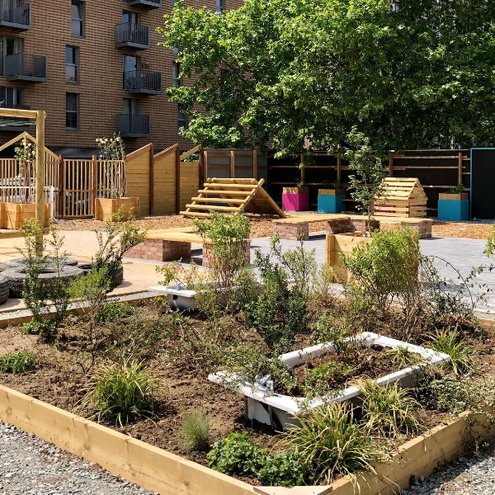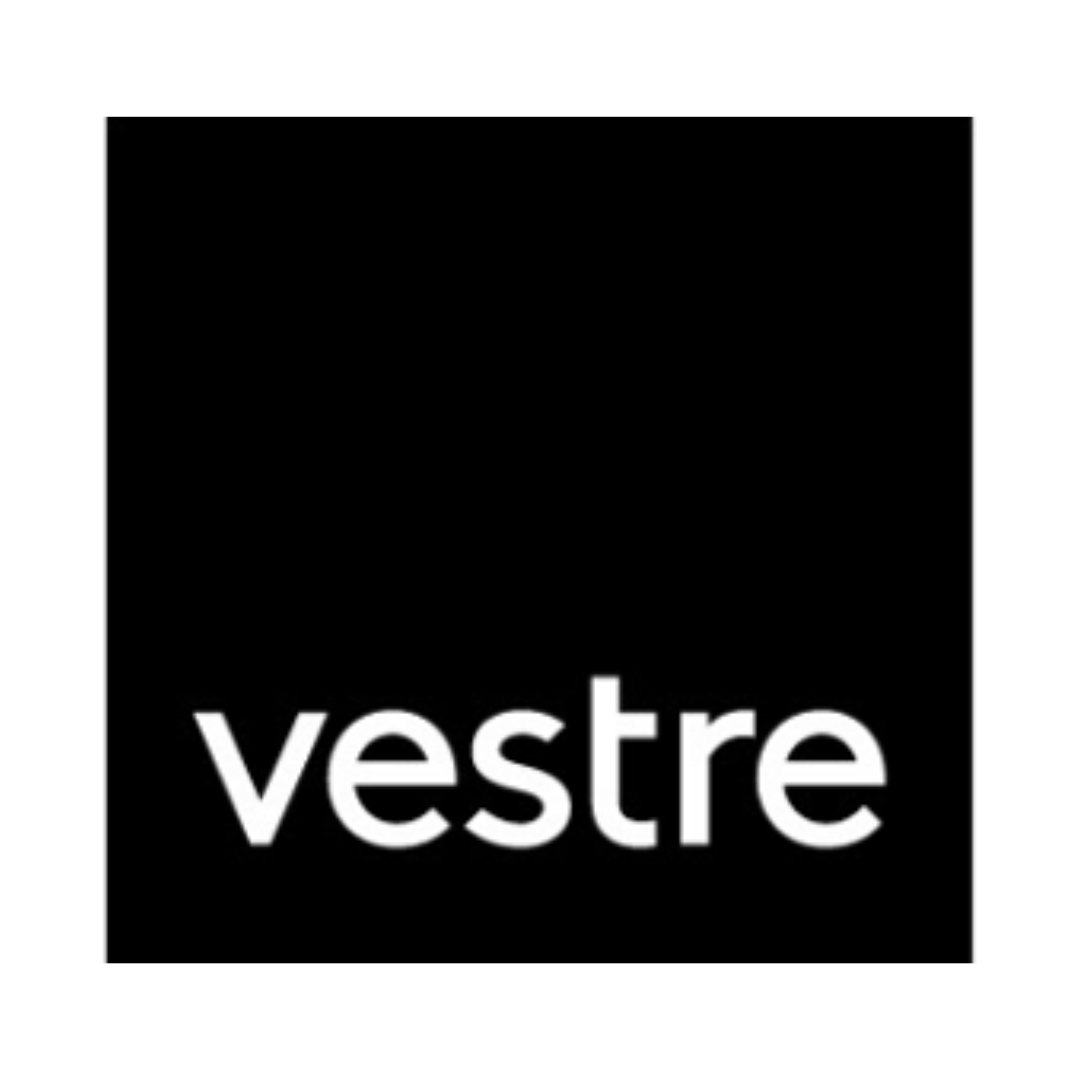Project showcase
Phoenix Park in the Gascoigne Neighbourhood, Barking and Dagenham – Be First with Gascoigne Residents' Forum, Fabrik and Urban Symbiotics

With the ambition to reduce levels of antisocial behaviour in the Gascoigne Neighbourhood, Phoenix Park was created with a residents forum to provide a temporary space for arts and social activities maintained by a volunteer workforce. Materials were salvaged from nearby demolition sites and will continue to be reused after the park’s lifespan.
Who is on the project team?
o Gascoigne Residents’ Forum
o Be First (developer and client)
o London Borough of Barking & Dagenham (local authority)
o Wates Residential (contractor)
o My Place (the council’s managing agent)
o Urban Symbiotics (engagement specialists)
o Fabrik (landscape architects)
Describe the context of this project and its neighbourhood and people?
The pocket park project, co-designed with residents on the award-winning Gascoigne Neighbourhood in the London Borough of Barking & Dagenham used predominantly reclaimed materials - transforming a previously unused, derelict site that attracted antisocial behaviour into a thriving hub which has been used for religious and community events, a job fair, Platinum Jubilee celebrations and recreational activities in the 19 months it has been open.
The park provides the neighbourhood’s 1000s of residents with a multifunctional space within reasonable walking distance, addressing local need following the temporary closure of a nearby park due to refurbishment.
The borough itself is undergoing regeneration and improvements and is the capital’s most affordable borough for housing. Home to one of the youngest populations in London, with more under 16 year olds than anywhere else in the UK, it is also one of the least affluent areas - almost a third of all children living in poverty and unemployment is higher than average.
Determined to ensure access to safe, clean, environmentally conscious and community-focused spaces, Be First and Wates invested in the area delivering a park that has helped residents and communities to connect with each other, partake in organised festivals and events, and reduce the levels of antisocial behaviour previously seen in the area, providing a major benefit to the local residents and community.
The residents forum was involved and engaged throughout the process. The park was built by volunteers and donated labour hours
Tell us what you did and how the project, event or installation enlivened the place in a creative way?
Be First and its project partners used a range of tools including online games and digital postcards to engage with a newly-established residents forum around the design, build and use of Phoenix Park within the Gascoigne Neighbourhood in Barking and Dagenham.
Given the diverse nature of the neighbourhood, the project partners also ensured the demographics were mirrored in terms of representation on the residents forum.
Involved throughout the process, residents proactively led on the design of the park, ensuring their needs were met and concerns addressed through positive two-way discussions. The forum devised an itinerary of elements they wanted to included and helped draw up designs for the space, forming the blueprint for Phoenix Park. Built by a mix of residents, local authority representatives, and Be First volunteers, the park was backed by local suppliers and the contractor’s supply chain donated hundreds of hours, too.
A sense of community ownership and responsibility was established from the outset; there are weekends dedicated to painting, planting, activity planning, and schedules for maintenance – a transformation from the previously derelict area that attracted antisocial behaviour.
The process fostered a harmonious working relationship between the forum, landscape architects, main contractor, maintenance team, and the client-developer, enabling them to co-design a place that creatively and flexibly meets a wide range of needs in the local community, such as a play area; space for outdoor recreation and arranging events, which have been attended by hundreds of members of the community.
How did you engage the community?
To encourage residents to use the space for community events and foster engagement between the neighbourhood’s residents and communities, Be First ensured that a stage was implemented in the centre of the park to allow speakers and organisers to choreograph set-piece events.
Since its launch, Phoenix Park has hosted several community events, including religious gatherings such as Iftar, Easter Eggstravaganza, a Platinum Jubilee tea party, a job fair, and for community planting and harvesting days – over 450 community attendees have taken part in at least 12 events so far, with more planned over the coming weeks and months.
The space is also regularly used for day-to-day activities, including as a children’s play area, a place for people to exercise, and as a general recreation space as well as an area for planting and gardening – all of which are known to have a positive impact on mental health and emotional wellbeing.
In terms of behaviour change, the site was previously empty, run-down houses that were attracting unwanted antisocial behaviour. Since its launch, residents have organised litter picking sessions to positively reinforce the actions that they want to see in both the park and the local area in direct contrast to the previous use and in a sense of community ownership and responsibility.
Did the project make a positive social and environmental contribution?
From an environmental, health and wellbeing, behavioural and community perspective, Phoenix Park has been a wonderful local success. It is no longer a place that attracts anti-social behaviour, providing space for play, residents to connect, and community events.
The park was primarily built using materials that have been reclaimed (about 75%) and can be re-used in the permanent regeneration of the area.
Joists, scaffold poles, pallets and bathtubs were salvaged from the nearby demolition and re-purposed as planters, decking, tables, benches, and play features. By using salvaged instead of new materials, the project is estimated to have saved at least 150 tonnes of waste and 10,000 kg of CO2 emissions, the equivalent of 50,000 km petrol car travel or 250 trips between Barking and Birmingham.
The materials used to construct Phoenix Park will also be recycled at the end of the park’s lifespan and the project has helped to inform local residents about repurposing discarded materials.
This is an excellent example of the circular economy - where materials are retained in use at their highest value for as long as possible and are then reused or recycled, minimising residual waste and protecting the environment.
Over 450 community members have taken part in 12 events on the site so far, with further planned.
The project was supported by 798 hours volunteered by project partners and £37,353 in materials donated by suppliers.
Festival of Pineapples
24-26 February 2026
Pineapples prize giving night
April
Pineapples at Festival of Place
10 June 2026
© The Pineapples - Tweak Ltd. 124 City Road, London, EC1V 2NX. Tel: 020 3326 7238




